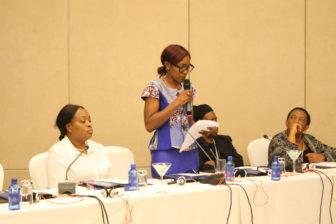Feb 18, 2020
BID Learning Network infographic
Since 2014, the BID Learning Network (BLN) has hosted learning exchanges, webinars, system demonstrations, and rich dialogues about digital and data solutions as a collaborative, country-owned peer learning network. Recently, the BLN expanded its scope to provide a set of holistic services that leverage our deep expertise, and those of partners on the design, implementation, and scale-up of digital and data solutions for routine health data. Our expanded commitment to peer learning will include advisory, capacity building, and knowledge management services for countries hoping to improve their own health information systems.Nov 26, 2019
The costs of developing, deploying and maintaining electronic immunisation registries in Tanzania and Zambia
BMJ Global Health
Hardware, Immunization Registry, Packaging, Policies, Practices, Products, Software
Tanzania, Zambia
Nov 11, 2019
The impact of an integrated electronic immunization registry and logistics management information system (EIR-eLMIS) on vaccine availability in three regions in Tanzania: A pre-post and time-series analysis
Vaccine
Since 2016, the Government of Tanzania has been implementing TImR, an integrated Electronic Immunization registry-logistics management information system (EIR-LMIS) that includes stock notifications. Working in close partnership with the Government of Tanzania, PATH conducted a study to estimate the impact of this intervention on vaccine availability. The findings of this study were published in Vaccine.Oct 22, 2019
BLN/Gavi Data Quality and Use Collaborative Meeting Reports: Lusaka, 24-26 July 2019
Peer Learning, People, Policies, Practices
Global
The BID Learning Network (BLN)/Gavi Data Quality and Use (DQU) Collaborative convened a meeting between July 24-26, 2019 in Lusaka, Zambia. It was attended by 25 participants, including immunization data managers from Burkina Faso, Cameroon, Liberia, Malawi, Mozambique, The Gambia, Uganda, and Zambia. This post includes the full meeting reports, including French and English translations.
Oct 3, 2019
Three waves of data use among health workers: The experience of the Better Immunization Data Initiative in Tanzania and Zambia
Global Health: Science and Practice
The governments of Tanzania and Zambia identified key data-related challenges affecting immunization service delivery including identifying children due for vaccines, time-consuming data entry processes, and inadequate resources. To address these challenges, since 2014, the countries have partnered with PATH’s Better Immunization Data (BID) Initiative to design and deploy a suite of data quality and use interventions. Two key aspects of the interventions were an electronic immunization registry and tools and practices to strengthen a culture of data use. As both countries deployed the interventions, three distinct changes in data use emerged organically. This article provides a detailed summary of these three phases or waves, based mostly on qualitative data or observation: (1) strengthening data collection using new data collection tools and processes and increasing efficiency of health workers; (2) improving data quality regarding accuracy and completeness; and (3) increasing use of data to take action to strengthen their work and for programmatic decision making. These waves clearly demonstrated the growing ability of health workers to move from data collectors to data analyzers who began to focus on the data quality and then the value of using the data in their day-to-day activities. For the full article, visit Global Health: Science and Practice.
Aug 27, 2019
BLN/Gavi Data Quality and Use Collaborative Meeting Presentations: Lusaka, 24-26 July 2019
The BID Learning Network (BLN)/Gavi Data Quality and Use (DQU) Collaborative convened a meeting between July 24-26, 2019 in Lusaka, Zambia. It was attended by 25 participants, including immunization data managers from Burkina Faso, Cameroon, Liberia, Malawi, Mozambique, The Gambia, Uganda, and Zambia. This post includes presentations from the meeting.
Aug 23, 2019
BLN Webinar | Cultivating a Data Use Culture: Lessons Learned from the BID Initiative
People, Policies, Practices, Products
Tanzania, Zambia
The BID Learning Network invites you to view a webinar presentation titled “Cultivating a Data Use Culture: Lessons Learned from the BID Initiative.” Global and national stakeholders have acknowledged that routine immunization programs face significant challenges related to the collection, availability, and use of data for planning, management, and improvement of program performance. To address these critical data challenges, the BID Initiative worked with the governments of Tanzania and Zambia, to introduce a suite of interventions at facility and district levels.
Aug 8, 2019
Electronic immunization registries in Tanzania and Zambia: Shaping a minimum viable product for scaled solutions
Frontiers in Public Health
eHealth, Immunization Registry, People, Policies, Products
Tanzania, Zambia
Jun 10, 2019
BID Regional Global Factsheet
Packaging, People, Policies, Practices
Global
Led by PATH, in partnership with the governments of Tanzania and Zambia, the BID Initiative is grounded in the belief that better data, plus better decisions, will lead to better health outcomes. BID was designed to create an environment in which reliable, easily accessed, and actionable data can be used to improve health outcomes. This factsheet summarizes the BID Regional portfolio of work.
Jun 7, 2019
BLN Webinar | Immunization Data: Evidence for Action (IDEA) Review
Packaging, Policies, Practices, Products
Global
The BID Learning Network invites you to view a webinar presentation on The Immunization Data: Evidence for Action (IDEA) Review. IDEA is a global synthesis of existing evidence aimed at increasing the use of high-quality data to improve immunization coverage. While advances in information technology have led to continuous increases in the amount of health data available, data remains an under-utilized resource in the design and implementation of immunization programs throughout the world. The IDEA Review identifies five proven strategies to improve data use and outlines how funders, policymakers, and program implementers can incorporate these best practices to improve the efficacy of regional and national immunization programs.
Jump in. Expand your knowledge.
Events
No upcoming events.
